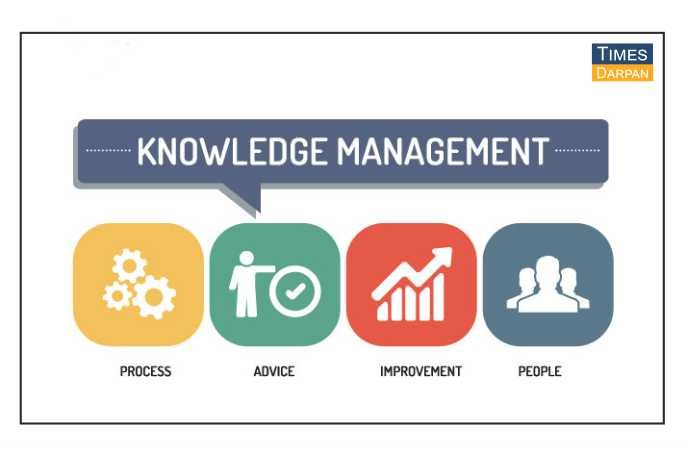If you want to know what is knowledge management? First, want to know what is knowledge management, you know about knowledge and their process. you can read my previous article for knowledge.
Most of the software companies have been contributing to knowledge management.
What is Knowledge management?
Knowledge management is any system that helps people in an organization share, access, and update business knowledge and information.
Knowledge management is, “a systematic, explicit, and deliberate building, renewal and application of knowledge to maximize an enterprise knowledge-related effectiveness and returns from its knowledge assets.”
The term Knowledge management is coined by kael Wiing who are a consultant and he coined this terms in an international Labour Organisation sponsored conference in 1986.
Thus, knowledge management is continuously creating and upgrading organisational knowledge in order to maximize the returns from its knowledge assets.
Knowledge management helps the organisation to improve of many factor.
Factor 1: Improve organisational effectiveness;
Factor 2: Improve the returns
Factor 3: Build competencies/competitive advantage/distinctive competencies.
Factor 4: Create greater value for core businesses
Factor 5: See the opportunities and exploit them.
What is Knowledge management process
Knowledge management process involves the continuous interaction among organisation’s knowledge assets (human resources and information processing system), intellectual capital and leadership.
The four dimensions of intellectual capital is presented in below.
Capital 1: Human capital
Human capital is the skills, knowledge, abilities, values, commitment, attitude and aptitude of organisation’s people. It comprises of explicit conceptual knowledge as well as tactic knowledge.
Capital 2: Structural Capital
Structural capital includes the explicit rules based knowledge embedded in the organisation’s work processes and systems encoded in written policies, shared databases of best practices, patents and copyrights.
Capital 3: Social capital
Social Capital is reflected in the ability of groups to collaborate and work together. Social capital marks workers into colleagues; it is the stock of active connections among people, the trust, mutual understanding and shared values and behaviors that make cooperative action possible.
Capital 4: Customer Capital
Which captures all client relationships.
Becksmens Eight Knowledge management Process
Becksmens has proposed an eight stage knowledge management process.
Stage 1: Identity stage
This stage includes identification of competencies necessary for organisational success.
Stage 2: Collect Stage
This stage includes acquiring existing knowledge, skills, experience etc., to posses the competencies.
Stage 3: Select Stage
This stage deals with the assessment of value of collected knowledge against the standard requirements for success.
Stage 4: Store Stage
This stage takes the nuggets of knowledge, classifies them and includes them in the organisational existing knowledge.
Stage 5: Share Stage
This stage makes the new and existing organisational knowledge accessible for employees.
Stage 6: Apply stage
This stage enables employees to apply knowledge in organisational activities/operations, decision-making, problem solving, exploiting opportunities etc.
Stage 7: Customer Acceptance
This stage involves obtaining customers acceptance clients approval for the products/services produced/developed based on the knowledge.
Stage 8: Create Stage
This stage involves development of new knowledge through observation, feedback, brain storming, failures in the previous events etc.
Benefits of Knowledge management
Companies derive the benefits from knowledge management. These benefits include.
Benefit 1: Companies discover the opportunities provided by the environment and exploit them with the help of knowledge created and developed.
Benefit 2: Companies can reduce the threats created by the environment.
Benefit 3: Derive more value and competencies from the intellectual property.
Benefit 4: Increased Productivity , profits etc.
Benefit 5: Learn continuously and retain competencies.
At last words, Knowledge management is the systematic capture of insights and experiences to enable an organization to identify, create, represent, and distribute knowledge. Knowledge management is a good way to an organisation’s success and they helps any organisation keep it running smoothly.
Related topic:-
For Contact with us you can like our Facebook page to and Subscribe to the YouTube channel.














I am entrepreneur and I do own business. Knowledge management is very important for a business